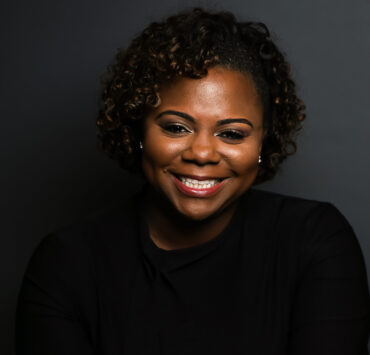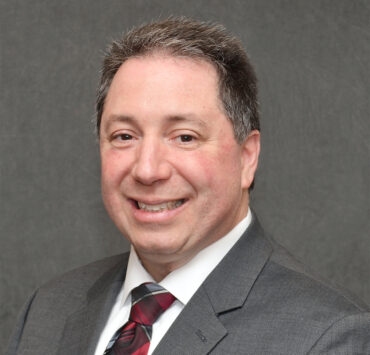Keep it simple. This is mantra Lisa Ledoux lives by. Asurion’s senior director of benefits knows that complex processes can keep employees from using features in their compensation packages, and her number one goal is to ensure employees understand their plan options, benefits resources, and how to use them. “We want employees to know, understand, and use the benefits that they have access to,” she says.
The Nashville-based company offers insurance coverage for smartphones, tablets, appliances, and other consumer electronics. The company’s fifteen thousand employees work in fourteen countries and serve nearly three hundred million customers. Ledoux is responsible for the strategy, creation, and implementation of health, welfare, well-being, mobility, and retirement benefits.
Ledoux leads a “small but mighty team of employee benefits professionals constantly striving for continuous improvement,” she says. “The business, and employees, know they can come to us and vent about whatever is not working or serving them and we will huddle together to find a way to fix it.”
Originally from Massachusetts, Ledoux graduated from Wheaton College and started as a consultant in employee benefits, specializing in small employers. The experience gave her a solid foundation and set the stage for the rest of her career.
“Small employers help HR professionals learn quirky rules because they are always looking to challenge the rules to help someone’s specific situation or save some money,” she says, adding that she’s been able to take those lessons learned to bigger companies like Ricoh Corporation and Wendy’s International. At Wendy’s, Ledoux designed benefits plans and executed changes related to the Affordable Care Act. She joined Asurion in 2015.
“The business, and employees, know they can come to us and vent about whatever is not working or serving them and we will huddle together to find a way to fix it.”
Lisa Ledoux
At the time, Asurion was in the midst of a growth phase and needed to compete to attract talent. The company, however, was only offering standard benefits and wanted something predictable and scalable for future growth. Ledoux embarked on a journey to scale benefits options to give employees more choice while ensuring the predictability of costs. “There are only a few appreciable ways to attract employees. One is to pay them a bunch of money and another is to offer them flexible benefits options. Flexibility and choice help companies stand out,” she says.
The HR team worked quickly to revamp Asurion’s benefits program, and before Ledoux’s second year was over they had transitioned to a private healthcare exchange that includes eleven different medical plans as well as multiple dental and vision plans. The new system not only keeps costs transparent and predictable but also brought savings that Ledoux tagged to fund enhanced well-being programs. As HR introduced these changes, they partnered with their communications colleagues to ensure all employees were aware of the changes and knew how to choose the best benefits for their situation and access all features.
As employees leaned on these well-being programs in wake of the COVID-19 pandemic, Asurion removed barriers to care by adding (and paying for) online therapy options. Employees appreciate the benefit that helped them manage personal, family, and work challenges while locked down.
Lisa Ledoux, like other benefits professionals, is now facing three big headwinds in remote work, inflation, and women’s rights. She is exploring adjustments to benefits offerings in the exchange and analyzing external options as well. “We have to make sure we provide equal access, we have to think about costs, and with employees working in different states, we have to make sure everything we do is legal,” she says, adding that the uncertainty makes the perfect solution elusive.
“You can’t just react and react when designing benefits plans. The best long-term strategy involves a lot of listening.”
Lisa Ledoux
As trends and details emerge, Ledoux is talking to her peers and polling her colleagues to find out what they want and need. “You can’t just react and react when designing benefits plans. The best long-term strategy involves a lot of listening,” she says. Asurion recently completed an employee survey that yielded some valuable and surprising intel regarding the most popular benefits. Life insurance was in the top five. Tuition reimbursement and day care benefits were not. Medical insurance, 401(k)s, and choice of plans were the most important to Asurion’s workforce.
When it comes to communicating benefits to employees and empowering them to use their plan, Ledoux is blunt about her approach. “We emphasize a multichannel communications approach, and we constantly adjust what we do based on employee usage and feedback. We have learned the value of personalized communications and strive to use those as appropriate,” she says. “Asurion’s employees don’t spend their days reading emails from HR or poring over benefits brochures—they’re helping customers. HR reaches them through a mixture of direct mailings, emails, digital signage, fliers, and targeted communications. Special keynote speakers at certain employee resource groups deliver the most important messages in person.”
Today, the US benefits team numbers less than ten, and Lisa Ledoux is doing her best to make sure they are empowered as well. She views herself as a servant leader and encourages each person on her team to talk to their business partners and Asurion’s business leaders as much as possible. “I’m here to help the people working directly with me so we can help the business solve problems and help people who work here thrive,” she says.
Asurion continues to expand. The company is rebranding its popular UBreakiFix retail shops as Asurion Tech Repair & Solutions and is now offering an Asurion Tech Unlimited protection and support plan to online shoppers on Amazon. Organic and inorganic growth will fuel the company, and as it adds more employees, the benefits team will make sure they are ready to take advantage of all the perks Asurion makes available.
Sharecare (Nasdaq: SHCR) is the digital health company that helps people—no matter where they are in their health journey—unify and manage all their health in one place. Its comprehensive virtual health platform helps people, employers, health plans, providers, and other organizations optimize wellbeing population-wide by driving positive behavior change.


